| |
|
| |
|
St Mary has a
melted-cheese appearance. The 15th century tower
didn't stand up to the centuries of neglect, and
rather than rebuild it, the Victorians reduced
it. So it stands all squat and sturdy, and looks
very well indeed. Reading the journals of
antiquarians of the 18th century, it is easy to
imagine the elements blowing through the parish
churches of Suffolk before the Tractarians sent a
great wave out of Oxford to renew them - but this
is so often an unjust simplification, especially
here, where a remarkable 18th century Rector
oversaw the pastoral care of this community.
His name was
Stephen White, and you step into a neat
little, sweet little interior that,
despite an overwhelming Victorianisation
(and a good one) still contains memories
of his stewardship. On the south wall is
the wooden sign from the school he opened
for the village children. It was the
building you passed at the churchyard
gate, but it is now a private house. On
August 29th, 1748, it opened for business
- and it was not slothful in
business, serving the Lord.
Remarkably, the school sign was painted
by that local up-and-coming artist,
Thomas Gainsborough.
Opposite, is his memorial - he died on
Easter Monday 1773, called away from
his labours, to receive their reward.
The
Victorians who inherited his good works
made an excellent job of the chancel -
Heaton, Butler and Bayne's psalmist
angels praise God in the east window, and
the stained glass evangelists of the
O'Connors either side of the sanctuary
are a delight.This church is by
no means a museum piece. That it is open
to the public every day is a sign that it
is fitting and purposeful for private
prayer, as much as for any tourists who
come for what Larkin calls 'a whiff of
antique'. Amen to that.
|
|
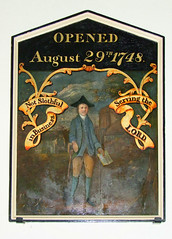 |
|
|
|
Simon Knott, July 2015
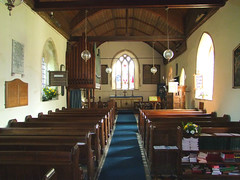
  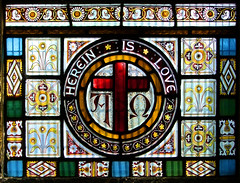
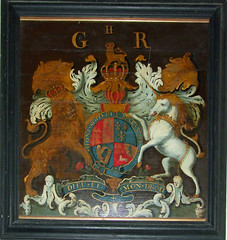 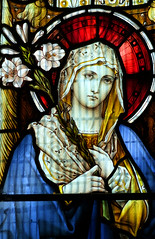   
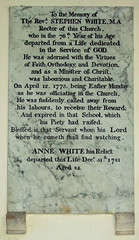 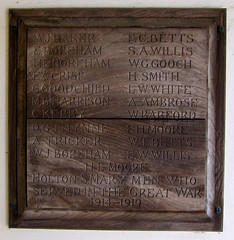 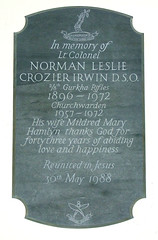
|
|
|

